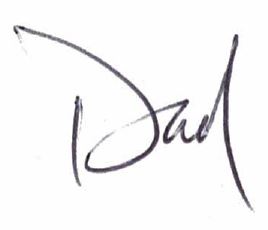Explaining death (Part 6): What happens after we die?
 As with most of our conversations, my daughter asked me out of the blue, “What happens when we die?” Even though she goes to a secular public school, she has friends from diverse backgrounds with different religious upbringing and so has had many discussions with her peers on everything from Santa Clause to Jesus Christ. While her friends may offer differing opinions, the answer to her is a little more difficult for me to answer.
As with most of our conversations, my daughter asked me out of the blue, “What happens when we die?” Even though she goes to a secular public school, she has friends from diverse backgrounds with different religious upbringing and so has had many discussions with her peers on everything from Santa Clause to Jesus Christ. While her friends may offer differing opinions, the answer to her is a little more difficult for me to answer.
As much as I don’t want my daughter to be brought up in the confines of any particular religious doctrine, I also try my best to allow her the freedom to explore what is meaningful to her both consciously and spiritually. And given that I have no real or near-real experiences of death, my answer comes from my feeble attempt by grounding the question on three things.
No questions are off limits. I’ve always believed that if a child can ask a legitimate question, then she deserves an honest (and age appropriate) answer. Dodging the question only creates confusion, taboo and might spawn other questions based out of fear. Just because I don’t have the answer doesn’t illegitimize the question. Also, if an answer can’t be found now, it doesn’t mean it can’t be found ever. These very questions define the human condition and can set a person on a lifelong journey. She has only taken the first step.
Share your understanding and let her build on that. I told my daughter what I believe when a person dies, two things happen. First, the body is prepared for ceremony whether it is burial or cremation but prior to this, the dead person can also help others posthumously by way of organ donation. These choices are made by the deceased or the surviving family. The other is the consciousness. Does the person enter a non-corporeal dream state existence? Does it travel to other realms? What if the person is in a coma? Does the consciousness weave in and out of our existence? Many people think of explanations to frame their understanding. No interpretation is incorrect.
![]() Perhaps the question is best answered not by describing what happens to the dead, but how the living will carry on.
Perhaps the question is best answered not by describing what happens to the dead, but how the living will carry on.
We all live on in the memory of others. My daughter asks me if I still think about my dad. I said I don’t often but her aunts and uncles do. So in many ways, her paternal grandfather lives on in fragments of memories that linger and are relived from time to time. On an annual basis, my siblings go and tend to his gravestone. In this way, he still has an impact. Since my daughter was born after my father’s death, I said to her, “The idea of your grandfather exists as an abstract rather than personal histories. In this way, he lives on in a more limited way in your mind.”
And at the end of the day, doesn’t all religion seek answers to comfort the living when speaking of matters about the dead? It’s not only religions of the world that have elaborate rituals to commemorate and to celebrate those who were important to us. We remember our war heroes on November 11, as the world comes together to remember Armistice Day for the conclusion of WWI. Perhaps the question is best answered not by describing what happens to the dead, but how the living will carry on.
Our conversation didn’t take place in one sitting. It took several and there were long pauses in between. I know she understands since this is not the first time we’ve talked about this. Then out of the blue, she asked, “Daddy, can I have another hamster?” No. “Why?” she inquired. Because they die. “But that’s life, daddy.” Glad you know. Still no.



